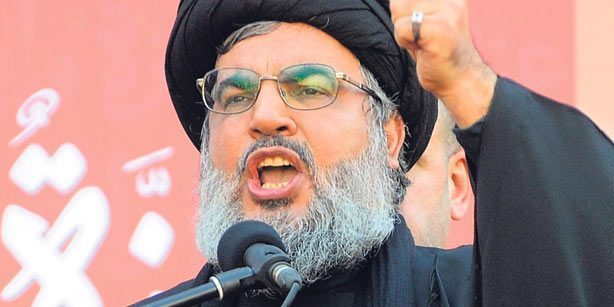
Trump administration made its last move against the Syrian civilians’ dreams in a free country, after declaring that ousting Bashar al-Assad is no longer a priority for the US but fighting “terrorism in Syria”, thereby consenting to Iran’s effective domination of the country and to Russia’s success in defending its allies Iran and Syria.
The Syrian crisis began as a peaceful demonstration against the injustice in Syria. Assad regime used to fire power and violence against the civilians and led to armed resistance. 450.000 Syrians lost their lives in the past five years according to UN estimates, and more than 12 million have lost their homes.
The Assad regime forces, backed by Russian air power, Iranian ground forces and Shi’ite militia fighters from Iran, Iraq, and Lebanon, has been tightening its grip on rebel-held districts around Syria, and together they committed crimes against the Syrian civilians to force the rebels to surrender.
After the Obama administration gave the Syrian civilians hope by saying that Assad should leave and he must be tried for his crimes, the civilians were later gravely disappointed when Obama care kept watching them being killed.
However, the little hope that the Syrians had in an international intervention has vanished after Trump became the president because he first said that Assad is a partner in fighting the terrorism that ISIS resembles, then lately saying that ousting Assad is no longer a priority for the US.
Assad is a partner
Trump has made it clear before his inauguration that he has no desire to confront Russian President Vladimir Putin in Syria, and he has said America would have been in much better shape if it had done nothing to help Syria’s opposition.
Putin was one of the first foreign leaders to congratulate Trump on November 9, noting specifically that Russia and the US shared a special responsibility to “sustain global stability and security”. It played well into Trump’s statement from last summer: “Wouldn’t it be nice if we got together with Russia and knocked the hell out of ISIS?”
One of the first things Trump was expected to do is coordinating with Putin to attack ISIS and also allowing Assad to remain in power
Trump said in one presidential debate: “I don’t like Assad at all, but Assad is killing ISIS. Russia is killing ISIS and Iran is killing ISIS,” indicating that he would worry less about consistent American relationships in the Middle East and more about defeating ISIS and getting the US out of the region.
He stated in the second presidential debate that regime change only causes more instability in the Middle East and while Assad is not exactly a welcome partner, shoring up his government is the best way to stem the extremism that has flourished in the chaos of Syria’s civil war.
Assad and his allies, which include Russia, Iran, and the Lebanese militia Hezbollah, are by far the most prolific mass murderers in Syria. ISIS has seized headlines with its videotaped gore. But most of Syria’s dead are dead because of Assad and indeed, most Syrian refugees have fled because of Assad.
Observers said that these warm relations with Russian and Assad will give them exactly what they want, a green card to escalate their military operations and deal last hits to the rebels under the term of fighting terrorism.
Read more: Is Trump’s election a stab in Syrian revolution’s back?
Assad can remain in power
The United States’ diplomatic policy on Syria, for now, is no longer focused on making Bashar al-Assad, leave power, the U.S. ambassador to the United Nations said, in a departure from the Obama administration’s initial and public stance on Assad’s fate.
The view of the Trump administration is also at odds with European powers, who insist Assad must step down. The shift drew a strong rebuke from at least two Republican senators.
On Thursday, both Secretary of State Rex Tillerson and Nikki Haley, the U.S. ambassador to the United Nations, let it be known that the United States no longer seeks Assad’s ouster.
“You pick and choose your battles and when we’re looking at this, it’s about changing up priorities and our priority is no longer to sit there and focus on getting Assad out,” U.S. Ambassador Nikki Haley told a small group of reporters.
“Our priority is to really look at how do we get things done. Who do we need to work with to really make a difference for the people in Syria?” Haley said.
“We can’t necessarily focus on Assad the way the previous administration maybe did. Do we think he’s a hindrance? Yes,” she said.
“Are we going to sit there and focus on getting him out? No.”
US Secretary of State Rex Tillerson backed Haley’s statement, saying that Assad’s future is up to the Syrian people to decide.
“I think the … longer-term status of President Assad will be decided by the Syrian people,” Tillerson said
Tillerson is due in Moscow next month for talks with Russian leaders, and Trump has long argued the powers should work together against ISIS.
White House spokesman Sean Spicer said that regarding Assad, “there is a political reality that we have to accept in terms of where we are right now.”
Spicer blamed the inability of Trump’s predecessor, Democrat Barack Obama, to persuade Assad to step down.
“We had an opportunity and we need to focus now on defeating ISIS,” Spicer said. “The United States has profound priorities in Syria and Iraq and we’ve made it clear that counterterrorism, particularly the defeat of ISIS, is foremost among those priorities.”
Victory for Russia and Iran
In a written statement, Senators John McCain argued that the statements signaled a shift to “a Faustian bargain with Assad and [Russian President Vladimir] Putin sealed with an empty promise of counterterrorism cooperation.” He warned: “Such a policy would only exacerbate the terrorist threat to our nation. Not only would we make ourselves complicit in Assad and Putin’s butchery that has led to more than 400,000 Syrians killed and six million refugees, but we would empower ISIS, al-Qaeda and other radical Islamist terrorists as the only alternative to the dictator that the Syrian people have fought for six years to remove.”
McCain concluded: “Trying to fight [the Islamic State] while pretending that we can ignore the Syrian civil war that was its genesis and fuels it to this day is a recipe for more war, more terror, more refugees, and more instability. I hope President Trump will make clear that America will not follow this self-destructive and self-defeating path.”
Senator Lindsey Graham likewise denounced the apparent decision. “If the press reports are accurate and the Trump Administration is no longer focusing on removing Assad, I fear it will be the biggest mistake since President Obama failed to act after drawing a red line against Assad’s use of chemical weapons,” Graham said in a written statement. “To suggest that Assad is an acceptable leader for the Syrian people is to ignore the wholesale slaughter of the Syrian people by the Assad regime. Leaving him in power is also a great reward for Russia and Iran.”
Following Obama’s path
Robert Ford, who resigned in 2014 as U.S. ambassador to Syria over policy disagreements, said the U.S. government’s policy since late 2014 had been to focus more specifically on the fight against Islamic State as well as al Qaeda, “even if it never acknowledged that its focus on Syria had shifted.”
“Ambassador Haley’s remarks just confirm that the Trump administration is following the same path,” said Ford, who is now a fellow at the Middle East Institute and senior fellow at Yale.
An analyst of the Washington Institute for Near East Policy told me: “There remain at least two key unknowns:
1) Will the Trump Administration truly counter Iran’s regional ambitions in Syria, as it has promised to do (and which the Obama administration refused to do lest such a policy threaten the Iran nuclear deal)?
2) Will the Trump administration take the necessary steps post-victory in Raqqa to ensure that Sunni grievances are addressed in such a way that son-of-ISIS does not emerge from the ashes of ISIS?”
He continued: ” If the answer to both questions is ‘yes,’ then the Administration will find itself taking measures that have the effect of driving Assad from power, even without declaring that as a goal, since Assad cannot long survive in a Syria in which Iran is on the defensive and Sunni grievances are addressed. If, however, the answer to either of these questions is ‘no,’ then Assad could be around for a long, long time.” In other words, rather than correcting the horrendous Obama policy, Republicans will have made it their own.



